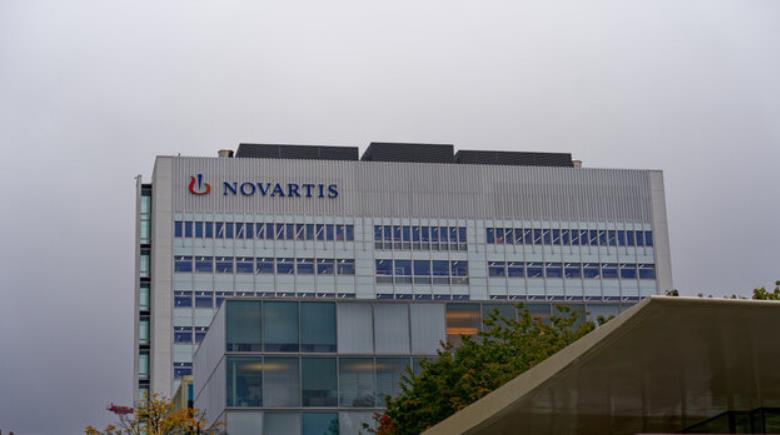
The announcement was made Monday by Syncona Investment Management Limited, founder and former majority investor in Gyroscope Therapeutics, which originally developed GT005. Novartis acquired Gyroscope in December 2021 for $800 million upfront with the potential of up to $700 million in milestone payments.
“We are naturally disappointed for patients following the decision to discontinue GT005, but we respect Novartis’ decision,” Syncona CEO Chris Hollowood said in a statement, adding that the firm will continue to build and maintain its portfolio of companies to drive strong value for its shareholders and “make a difference to the lives of patients with devastating diseases.”
According to Syncona’s announcement, Novartis made the cut after an Independent Data Monitoring Committee reviewed available data from the lead Phase II HORIZON study and deemed that GT005’s performance “did not support continuation of the development program.”
As a result of GT005’s discontinuation, Syncona will write off approximately $62 million in milestone payments from Gyroscope that it would have received as part of the 2021 acquisition agreement.
Novartis’ decision to discontinue the development of GT005 in geographic atrophy (GA), an advanced form of age-related macular degeneration, comes two weeks after it similarly dropped the Xoma-partnered anti-TGFβ antibody NIS793. The candidate was being assessed as a potential first-line therapy for pancreatic ductal carcinoma, for which Novartis was running a Phase III trial that combined NIS793 with gemcitabine and nab-paclitaxel.
Though enrollment into all active clinical trials of NIS793 have stopped, Novartis will still collect data from these studies once they have concluded. Xoma will regain rights to NIS793, which will remain an investigational compound.
A month earlier, in July 2023, disappointing clinical data also caused Novartis to divest two other assets. The first was an anti-TIGIT checkpoint inhibitor being developed with BeiGene for non-small cell lung cancer. A week later, Novartis also abandoned the investigational obesity drug MBL949 after “lack of efficacy” in a Phase II trial.
MBL949 works via the GFD-15 pathway, which Novartis CEO Vas Narasimhan had previously touted as a “unique mechanism of action.”
In June 2023, Novartis also sold its dry eye disease drug Xiidra (lifitegrast ophthalmic solution) to Bauch + Lomb for $1.75 billion upfront, along with up to $750 million in potential milestones. Xiidra is the first FDA-approved prescription drug for dry eye disease and made $487 million in earnings in 2022.

Check out our AAV CDMO service to expedite your gene therapy research
PackGene is a CRO & CDMO technology company that specializes in packaging recombinant adeno-associated virus (rAAV) vectors. Since its establishment in 2014, PackGene has been a leader in the AAV vector CRO service field, providing tens of thousands of custom batches of AAV samples to customers in over 20 countries. PackGene offers a one-stop CMC solution for the early development, pre-clinical development, clinical trials, and drug approval of rAAV vector drugs for cell and gene therapy (CGT) companies that is fast, cost-effective, high-quality, and scalable. Additionally, the company provides compliant services for the GMP-scale production of AAVs and plasmids for pharmaceutical companies, utilizing five technology platforms, including the π-Alpha™ 293 cell AAV high-yield platform and the π-Omega™ plasmid high-yield platform. PackGene’s mission is to make gene therapy affordable and accelerate the launch of innovative gene drugs. The company aims to simplify the challenging aspects of gene therapy development and industrialization processes and provide stable, efficient, and economical rAAV Fast Services to accelerate gene and cell therapy development efforts from discovery phase to commercialization.
Related News
Exploring Tau Protein’s Role in Glaucoma: New Insights and Therapeutic Potential
Glaucoma, a chronic neurodegenerative disorder, leads to irreversible vision loss by damaging retinal ganglion cells (RGCs) and the optic nerve, often associated with increased intraocular pressure (IOP). Despite the benefits of IOP-lowering treatments, the underlying...
FDA-mandated CAR-T monitoring period could be halved, say researchers
In patients with diffuse large B-cell non-Hodgkin lymphoma (DLBCL), the two hallmark post-chimeric antigen receptor (CAR)-T therapy toxicities are extremely rare after two weeks, supporting a shorter, more flexible toxicity monitoring period, according to a study...
Ancestral CRISPR-Cas13 Ribonucleases Discovered: Implications for Genome Editing
In a pioneering study published in *Science*, a team of researchers led by Peter H. Yoon and Jennifer A. Doudna from the University of California, Berkeley, has made a remarkable discovery in the realm of CRISPR technology. The team has identified an ancestral clade...
KBI Biopharma Expands Manufacturing Contract with Global Pharmaceutical Company
KBI Biopharma Inc., a JSR Life Sciences company and global cGMP contract development and manufacturing organization (CDMO), has extended and expanded its manufacturing contract with a leading global pharmaceutical company. Originally initiated in 2020, the renewed...
Related Services

Plasmids GMP Services
Multiple scales & grade of solutions of various kind of plasmids suitable for multiple treatments in a fast and cost effective way.
READ MORE

AAV GMP Services
Ranging from small-scale AAV production, to large-scale AAV cGMP manufacturing for animal studies.
READ MORE

Technology Platforms
PackGene’s proprietary π-Alpha™ 293 AAV High-yield Platform increases AAV production by 3 to 8 times that of traditional platforms.
READ MORE

